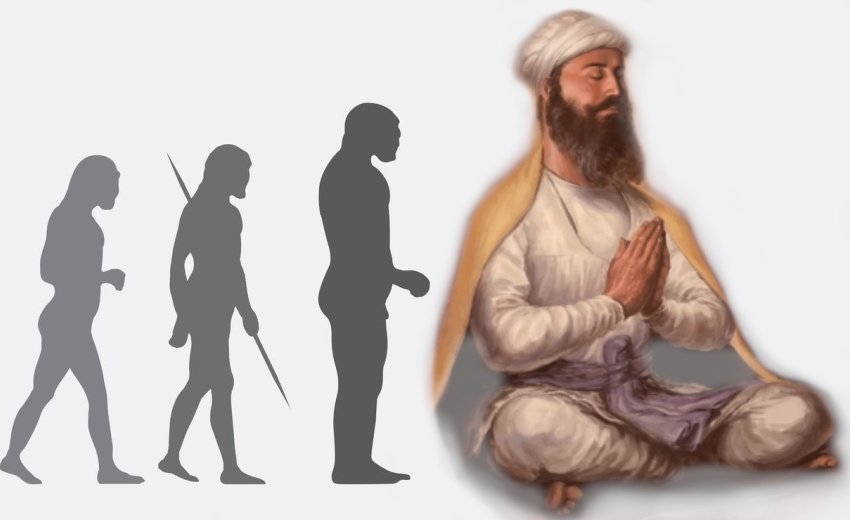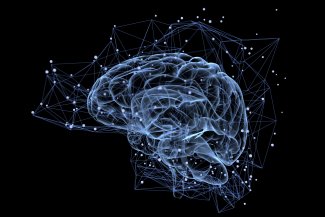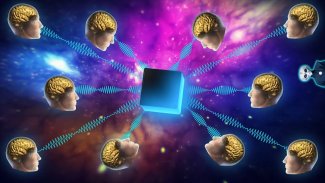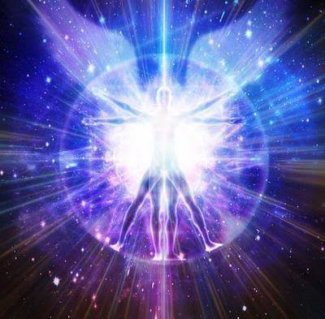The human mind is the most unique, powerful, and complex creation of Nature. It gives us the capability to discern things, know ourselves and the world. It helps us to adapt to our circumstances or change these to ensure our survival and wellbeing. The human mind possesses matchless creativity and extensive capacity to create its own reality. Sadly, the remarkable mind has been hijacked to the make-belief circle and the illusive world.
Guru Tegh Bahadur, the ninth Sikh Guru, is credited with 57 Salokas and 59 other compositions (Shabads), written in 15 Raagas (measures). His hymns are enshrined in Sri Guru Granth Sahib [1-4]. These hymns cover a diverse range of topics [5-8]. A dozen Shabds and over three dozen verses directly address the problems of the human mind and its effect on human destiny [7]. In his compositions, the Guru enunciates on the origin and the description of the animalistic habits of the human mind. He emphasizes that the mind's fickleness is the primary cause of unhappiness and failure in achieving our prescribed life goals.
The Guru urges that we can restrain and channelize our mental energies. A person can do so by diverting his/her mind from its animalistic tendencies and turning it to its innate longing for spiritual enlightenment. He emphasizes that with the continual longing for the Divine Grace (of Ek Onkaar) and by cultivating a compassionate and contented attitude, one can achieve the goal of harnessing one's mind.
Mind: The Contrasting Views
In response to the evolutionary challenges of our world, Western thinkers and philosophers are engaged in investigating the external world such as stars, galaxies and the universe. They are looking for ways to maneuver the natural environment to the human advantage or gain control over it.
In stark contrast, Eastern faiths, especially Sikhi, begins with a premise that the human mind is central to understand and manoeuvre through the natural world and human evolution. Sikhi points out that outside images are the reflection of the human mind. Gurbani repeatedly emphasized that human life is an opportunity to harness the mind to achieve life goals.
In the current terminology, the mann (mind) is described as the menome. Menome is a complete set of memes. British biologist Richard Dawkins proposed the term "meme" to describe a unit of intellectual or cultural information perceived by human beings and survives long enough to be recognized as such [9-11]. Memes, as the coded units, can pass from menome to menome or from one human mind to another, impacting our thinking process. Mimetic information passes from one person to another, from one society to another, and from one generation to the next. This aspect of the memes makes it the instrument of future human evolution.
To understand the instinctive mind, we need to explore the prenatal human biography. We must look into the ancient period for sequences, from the lives of our animal and human ancestors, with whom we share the genetic connections [9-11]. Christian theology interprets prenatal human history as the principle of original sin. It postulates that humans are born with a sinful mind. The Oriental religions invoke the law of karma to define the development of the animalistic human mind. Modern science views the human mind as the total of animal and human evolution completed to date [9-11]. Whichever way one may interpret the mind, it is for sure that prenatal human biography has affected the human mind. It has occurred throughout the history of the animalistic world. Humans have passed through numerous life forms during the preceding life cycles, ranging from unicellular organisms to primitive humanoids. The Sikh theology supports this evolutionary principle when it says,
ਪਸੁ ਪੰਖੀ ਬਿਰਖ ਅਸਥਾਵਰ ਬਹੁ ਬਿਧਿ ਜੋਨਿ ਭ੍ਰਮਿਓ ਅਤਿ ਭਾਰੀ ॥
Pas pankẖī birakẖ asthāvar baho biḏẖ jon bẖarmi▫o aṯ bẖārī.
I wandered a great deal in innumerable incarnations of species, including mountains, trees, birds, and beasts. (M. 5. SGGS, p. 1388)
The existent animalistic tendencies in human beings are described in Gurbani as:
Karṯūṯ pasū kī mānas jāṯ.
Although human beings belong to the homo-sapien class, yet their traits are those of sub-human animals. (M. 5, SGGS, p. 267)
Inherited sub-human experiences
The prenatal history of the evolutionary experiences reveals that the doctrine of survival was the sole experience practiced for many life cycles. As imprinted on human minds, it guided our primitive human ancestors in selecting the best behavioural strategies for their physical survival in the periods of evolutionary history. They learnt to expend most of their time searching and fighting for food to satiate their hunger. They developed physical skills and mental anger to fight in self-defence when in danger or under attack. They wooed members of the opposite sex for procreation. In other words, their needs were of the sub-human type, and their acquired skills were animalistic at best compared to today's needs. Gurbani describes this occurrence as:
ਮਤਿ ਬੁਧਿ ਭਵੀ ਨ ਬੁਝਈ ਅੰਤਰਿ ਲੋਭ ਵਿਕਾਰੁ ॥ ਲਖ ਚਉਰਾਸੀਹ ਭਰਮਦੇ ਭ੍ਰਮਿ ਭ੍ਰਮਿ ਹੋਇ ਖੁਆਰੁ ॥
Maṯ buḏẖ bẖavī na bujẖ▫ī anṯar lobẖ vikār. Lakẖ cẖa▫orāsīh bẖaramḏe bẖaram bẖaram ho▫e kẖu▫ār.
People don't understand that their intellect and understanding are perverted. They are filled with greed and corruption. They wandered as lost and confused through millions of incarnations. They were ruined through these experiences during such wandering. (M. 3, SGGS, p. 27)
These imprints of the sub-human psyche are still present in us. These are the lessons from our sub-human history. But these are of a little advantage in the ever-developing new world. Instead, these imprints impede our spiritual progress. Furthermore, their expression in our present life becomes the cause of many sufferings as the human mind is nothing more than a menome of memes and genes. The meme-centered culture exhibits a substrate of pain and anguish.
Meme-focussed Vision of Mind
The memes are artifacts of the interaction of today's culture that build up the imprints of self-centred genes. The memes are self-centred as they are the ideas or experiences of others. The memes are adept in replicating and co-evolving with massive apathy to their effect on their host humans. They infect the mind so that the actual purpose of life is forgotten. It is horribly discomforting, disturbing, and degenerating. Guru Tegh Bahadur describes it in this way.
ਭੂਲਿਓ ਮਨੁ ਮਾਇਆ ਉਰਝਾਇਓ ॥ਜੋ ਜੋ ਕਰਮ ਕੀਓ ਲਾਲਚ ਲਗਿ ਤਿਹ ਤਿਹ ਆਪੁ ਬੰਧਾਇਓ ॥
Bẖūli▫o man mā▫i▫ā urjẖā▫i▫o. Jo jo karam kī▫o lālacẖ lag ṯih ṯih āp banḏẖā▫i▫o.
My mind is deluded due to its entanglement in the material world. Engaged in greed, whatever actions I do they only serve to bind me down. (M. 9, SGGS, p. 702)
In reality, the cultural meme spread their copies through cultural messages. They rob one's mind of its meaning as a master. They take charge to make one's life very unpleasant and disgusting. A meme-focused vision of mind and culture is a powerful control mechanism. It imposes an imperceptible controlling structure on our language, scientific thinking, philosophical systems, political behaviour, religion, and even history. Thereby they all become tools of our confinement into never-ending misery. Perhaps, this is what compelled Guru Tegh Bahadur to describe the meme created by our popular cultures and mythology related to psychological bondage.
ਸਗਲ ਜਨਮ ਭਰਮ ਹੀ ਭਰਮ ਖੋਇਓ ਨਹ ਅਸਥਿਰੁ ਮਤਿ ਪਾਈ ॥ਬਿਖਿਆਸਕਤ ਰਹਿਓ ਨਿਸ ਬਾਸੁਰ ਨਹ ਛੂਟੀ ਅਧਮਾਈ ॥
Sagal janam bẖaram hī bẖaram kẖo▫i▫o nah asthir maṯ pā▫ī. Bikẖi▫āskaṯ rahi▫o nis bāsur nah cẖẖūtī aḏẖmā▫ī.
Deluded by doubt, I have wasted my whole life. I have not obtained a stable intellect. I remain under the influence of corrupting sins, night and day, and I have not renounced wickedness. (M. 9, SGGS, p. 632)
The cultural memes constitute the omnipresent environment that we live in today.
Fickleness of Mind
Though the human mind is the highest expression of Nature in the mortal world, it is inherently fickle. This characteristic of mind is the source of all the misery a person faces in his/her life. Several factors contribute to the mind's fickleness. The wavering nature of mind and its cause has been pointed out by Guru Tegh Bahadur as;
ਸਾਧੋ ਇਹੁ ਮਨੁ ਗਹਿਓ ਨ ਜਾਈ ॥ ਚੰਚਲ ਤ੍ਰਿਸਨਾ ਸੰਗਿ ਬਸਤੁ ਹੈ ਯਾ ਤੇ ਥਿਰੁ ਨ ਰਹਾਈ ॥
Sāḏẖo ih man gahi▫o na jā▫ī. Cẖancẖal ṯarisnā sang basaṯ hai yā ṯe thir na rahā▫ī.
O, Wise Ones! This mind cannot be restrained. Fickle desires dwell with it, and so it doesn't remain steady. (M. 9, SGGS, p. 219)
Gurbani defines fickleness of mind [8-9] as "continuously running after transient things, entangled in illusions, craftiness, and evil passions. It remains ever unsatisfied and begs for more and more worldly gains." Guru Tegh Bahadur indicates this reality in his verses as;
ਮ੍ਰਿਗ ਤ੍ਰਿਸਨਾ ਜਿਉ ਝੂਠੋ ਇਹੁ ਜਗ ਦੇਖਿ ਤਾਸਿ ਉਠਿ ਧਾਵੈ ॥
Marig ṯarisnā ji▫o jẖūṯẖo ih jag ḏekẖ ṯās uṯẖ ḏẖāvai.
Like the deer's delusion (mirage), this world is unreal (false), and yet, beholding it, one's mind chase after it. (M. 9, SGGS, p. 219)
The fickleness of mind pushes away success in our daily life and is the biggest hindrance [11-12] on the path of spiritual realization. Until the causes of the fickleness of the mind are not removed, one does not experience peace. Guru Tegh Bahadur pointed out that one must restrain or channelize the mental energies [5-6].
Harnessing the Mind
Spiritual success is the removal of the fickleness of the mind. It comes with a continuous and consistent focus in a specific direction. We draw the grace for the mind's change and transformation through the self-effort of concentration and meditation. To tame the fickle mind, Guru Tegh Bahadur urges us to focus on the love of God.
ਮਨ ਰੇ ਸਾਚਾ ਗਹੋ ਬਿਚਾਰਾ ॥ ਰਾਮ ਨਾਮ ਬਿਨੁ ਮਿਥਿਆ ਮਾਨੋ ਸਗਰੋ ਇਹੁ ਸੰਸਾਰਾ ॥
Man re sācẖā gaho bicẖārā. Rām nām bin mithi▫ā māno sagro ih sansārā.
O, Mind! Embrace true contemplation. Except the love of God, know that this whole world is false. (M. 9, SGGS, p. 703)
In his verses, Guru Tegh Bahadur articulates that the human mind is based on two factors. The first factor is the evolutionary past of our species, which is dominated by five inborn urges of lust, anger, avarice, attachment, and narcissism. The second factor is realizing one's finite existence and aspiration to transcend one's finitude by relating oneself to the transcendent Infinite Wisdom (God). Often the urge to God-realization lies submerged in mind, and we live an ego-centred life. The ego-centred life is built on a false view of a world called 'maya.' Transitory things allure a human being towards maya. It deprives a person of his/her mind's potentiality to rise to the vision of Infinite Wisdom. Guru Tegh Bahadur proclaims that by seeking the help of the Infinite Wisdom (Ek Onkaar), one could achieve the goal of diverting the mind from animalistic tendencies (e.g. instability of mind, discontent, greed, fear, selfishness, deceit, fanaticism, prejudice, caste, colour and creed divisions, and indifference to spiritual advancements) and redirect it towards attaining spiritual enlightenment. He emphasizes that contemplation on the Infinite Wisdom helps control the mind and achieve everlasting quietude.
ਮਾਈ ਮੈ ਧਨੁ ਪਾਇਓ ਹਰਿ ਨਾਮੁ ॥ ਮਨੁ ਮੇਰੋ ਧਾਵਨ ਤੇ ਛੂਟਿਓ ਕਰਿ ਬੈਠੋ ਬਿਸਰਾਮੁ ॥
Mā▫ī mai ḏẖan pā▫i▫o har nām. Man mero ḏẖāvan ṯe cẖẖūti▫o kar baiṯẖo bisrām.
O, Mother! I have gained the wealth of the Lord's Name (love of God). My mind has stopped wandering, and now, it has come to rest. (M. 9, SGGS, p. 1186)
Transformation of Mind
Guru Tegh Bahadur emphasized the real damage our memes and their storehouse (mind) cause to our life goals. Under the control of genes, memes, genetic instructions, and mimetic lessons, the human mind provides generic wisdom. It applies only to physical and environmental situations. It prompts us to act in ways that have been generally useful in the past for similar situations. For instance, human beings might be genetically equipped to avoid a snake or other dangerous animal but incapable of avoiding unscrupulous salespersons, clerics, saints, and many materialistic role models, who may be more poisonous for our consciousness and spiritual goals. Thus, such wisdom is mismatched to our needs for enlightenment.
The Guru insists on the transformation of our mind. A human being must demolish the barriers of the self-centred ego that separates him/her from Infinite Wisdom. For a person, contemplation of God must not be an extrinsic act of ritualistic exhibition but a psychological act of communion, of imbibing the virtues of humility and internal cleansing. Guru Tegh Bahadur proclaims:
ਤੀਰਥ ਬਰਤ ਅਰੁ ਦਾਨ ਕਰਿ ਮਨ ਮੈ ਧਰੈ ਗੁਮਾਨੁ ॥ ਨਾਨਕ ਨਿਹਫਲ ਜਾਤ ਤਿਹ ਜਿਉ ਕੁੰਚਰ ਇਸਨਾਨੁ ॥
Ŧirath baraṯ ar ḏān kar man mai ḏẖarai gumān. Nānak nihfal jāṯ ṯih ji▫o kuncẖar isnān.
If someone goes on pilgrimages to sacred shrines, observes ritualistic fasts, and makes donations to charities but takes pride in such actions, Nanak says: the person's such efforts are futile. Such a person is like an elephant, who takes a bath and then rolls in the dust. (M. 9, SGGS, p. 1428)
ਤੀਰਥ ਕਰੈ ਬ੍ਰਤ ਫੁਨਿ ਰਾਖੈ ਨਹ ਮਨੂਆ ਬਸਿ ਜਾ ਕੋ ॥ ਨਿਹਫਲ ਧਰਮੁ ਤਾਹਿ ਤੁਮ ਮਾਨਹੁ ਸਾਚੁ ਕਹਤ ਮੈ ਯਾ ਕਉ ॥
Ŧirath karai baraṯ fun rākẖai nah manū▫ā bas jā ko. Nihfal ḏẖaram ṯāhi ṯum mānhu sācẖ kahaṯ mai yā ka▫o.
By bathing at sacred shrines and adhering to fasts, even if one has no control over one's mind, then such a religion is of no use to the person. (M. 9, SGGS, p. 831)
Cognizing the power of human will, the Guru proclaims that it is within one's ability to control one's lower passions and form a bond with Infinite Wisdom (God).
ਪਰ ਨਿੰਦਾ ਉਸਤਤਿ ਨਹ ਜਾ ਕੈ ਕੰਚਨ ਲੋਹ ਸਮਾਨੋ॥ ਹਰਖ ਸੋਗ ਤੇ ਰਹੈ ਅਤੀਤਾ ਜੋਗੀ ਤਾਹਿ ਬਖਾਨੋ॥
Par ninḏā usṯaṯ nah jā kai kancẖan loh samāno. Harakẖ sog ṯe rahai aṯīṯā jogī ṯāhi bakẖāno.
A person, who is indifferent to slander or praise, looks upon gold and iron alike and is free from pleasure and pain; he/she alone is called a true Yogi (a markedly reflective or mystical person). (M. 9, SGGS, p. 685)
Conclusions
Due to the continuing cultural imprisonment, the human mind keeps wandering and never learns to calm down and be still. The fickleness of mind has become so strong in present times that it has rendered us helpless. Guru Teg Bahadur again warned us about this helplessness. Guru Tegh Bahadur enunciates that a human being ought to seek the grace of the "Infinite Wisdom" for saving himself/herself from the grips of the animalistic mind. Guru Tegh Bahadur's writings alert us about many human tendencies (e.g. seeking divine guidance, divine grace, spiritual wisdom and mindfulness of divinity) that should be nourished to weaken the animalistic tendencies. He outlined the endeavour of naam simran (contemplation) to train the mind so that it could be diverted towards spirituality to experience divinity. He states that through naam simran, one can obtain the quietude of mind and achieve bliss.
Guru Tegh Bahadur's paradigm allows us to manipulate complex patterns of replicating memes into spirituality. This paradigm takes control of human behaviour away from the materialistic cultures and hands them over to the inner faculties of human consciousness, leading to pure bliss. There is no pain in that quiescent state. Guru Tegh Bahadur illustrates this paradigm in his hymns as:
ਸਾਧੋ ਮਨ ਕਾ ਮਾਨੁ ਤਿਆਗਉ ॥ਕਾਮੁ ਕ੍ਰੋਧੁ ਸੰਗਤਿ ਦੁਰਜਨ ਕੀ ਤਾ ਤੇ ਅਹਿਨਿਸਿ ਭਾਗਉ॥੧॥ ਰਹਾਉ॥
ਸੁਖੁ ਦੁਖੁਦੋਨੋ ਸਮ ਕਰਿ ਜਾਨੈ ਅਉਰੁ ਮਾਨੁ ਅਪਮਾਨਾ॥ ਹਰਖ ਸੋਗ ਤੇ ਰਹੈ ਅਤੀਤਾ ਤਿਨਿ ਜਗਿ ਤਤੁ ਪਛਾਨਾ॥੧॥
ਉਸਤਤਿ ਨਿੰਦਾ ਦੋਊ ਤਿਆਗੈ ਖੋਜੈ ਪਦੁ ਨਿਰਬਾਨਾ॥ਜਨ ਨਾਨਕ ਇਹੁ ਖੇਲੁ ਕਠਨੁ ਹੈ ਕਿਨਹੂੰ ਗੁਰਮੁਖਿ ਜਾਨਾ ॥੨॥
Sāḏẖo man kā mān ṯi▫āga▫o. Kām kroḏẖ sangaṯ ḏurjan kī ṯā ṯe ahinis bẖāga▫o. ||1|| rahā▫o.
Sukẖ ḏukẖ ḏono sam kar jānai a▫or mān apmānā. Harakẖ sog ṯe rahai aṯīṯā ṯin jag ṯaṯ pacẖẖānā. ||1||
Usṯaṯ ninḏā ḏo▫ū ṯi▫āgai kẖojai paḏ nirbānā. Jan Nānak ih kẖel kaṯẖan hai kinhūʼn gurmukẖ jānā. ||2||
O Holy Saints! Forsake narcissism. Make it your daily routine to shirk sexual desire, anger and the company of evil people. ||1||Pause|| One who treats pain and pleasure, honour and dishonour in the same way and remains aloof to joy and sorrow, realizes the true essence in the world. ||1|| Renouncing praise and slander; he/she seeks salvation. Nanak says, it is such a difficult task that only a few spiritually enlightened persons (Gurmukhs) understand it! (M. 9, SGGS, p. 219)
The state of the person, who has attained salvation is also described by Guru Tegh Bahadur in his hymns, as:
ਮਾਈ ਮੈ ਧਨੁ ਪਾਇਓ ਹਰਿ ਨਾਮੁ ॥ਮਨੁ ਮੇਰੋ ਧਾਵਨ ਤੇ ਛੂਟਿਓ ਕਰਿ ਬੈਠੋ ਬਿਸਰਾਮੁ ॥੧॥ ਰਹਾਉ ॥
ਮਾਇਆ ਮਮਤਾ ਤਨ ਤੇ ਭਾਗੀ ਉਪਜਿਓ ਨਿਰਮਲ ਗਿਆਨੁ ॥ ਲੋਭ ਮੋਹ ਏਹ ਪਰਸਿ ਨ ਸਾਕੈ ਗਹੀ ਭਗਤਿ ਭਗਵਾਨ ॥੧॥
ਜਨਮਜਨਮ ਕਾ ਸੰਸਾ ਚੂਕਾ ਰਤਨੁ ਨਾਮੁ ਜਬ ਪਾਇਆ ॥ਤ੍ਰਿਸਨਾ ਸਕਲ ਬਿਨਾਸੀ ਮਨ ਤੇ ਨਿਜ ਸੁਖ ਮਾਹਿ ਸਮਾਇਆ॥੨॥
ਜਾ ਕਉ ਹੋਤ ਦਇਆਲੁ ਕਿਰਪਾ ਨਿਧਿ ਸੋ ਗੋਬਿੰਦ ਗੁਨ ਗਾਵੈ॥ਕਹੁ ਨਾਨਕ ਇਹ ਬਿਧਿ ਕੀ ਸੰਪੈ ਕੋਊ ਗੁਰਮੁਖਿ ਪਾਵੈ ॥੩॥
Mā▫ī mai ḏẖan pā▫i▫o har nām. Man mero ḏẖāvan ṯe cẖẖūti▫o kar baiṯẖo bisrām. ||1||
rahā▫o. Mā▫i▫ā mamṯā ṯan ṯe bẖāgī upji▫o nirmal gi▫ān. Lobẖ moh eh paras na sākai gahī bẖagaṯ bẖagvān. ||1||
Janam janam kā sansā cẖūkā raṯan nām jab pā▫i▫ā. Ŧarisnā sakal bināsī man ṯe nij sukẖ māhi samā▫i▫ā. ||2||
Jā ka▫o hoṯ ḏa▫i▫āl kirpā niḏẖ so gobinḏ gun gāvai. Kaho Nānak ih biḏẖ kī sampai ko▫ū gurmukẖ pāvai. ||3||
O mother, I have received the blessings of the Creator. Now, my mind has lost its fickleness and obtained peace. ||1||Pause|| Worldly desires have left me, and immaculate spiritual wisdom has welled up within. Greed and attachment don't entice me now; I am blessed with the devotional worship of the Divine. ||1|| The cynicism of countless lifetimes is eradicated with the grace of the Divine (naam). My mind is bereft of all its desires, and peace is prevailing within. ||2|| The person, to whom the Merciful ONE blesses, sings the Glorious Praises of the Divine. Nanak says that this state is obtained only by a Gurmukh (spiritually enlightened person). ||3| (M.9, SGGS, p. 1186)
References
-
Sri Guru Granth Sahib, 1983 (Reprint), S.G. P. C., Amritsar. pp 1-1430.
-
Sant Singh Khalsa, English translation of Sri Guru Granth Sahib. http://www.srigranth.org/servlet/gurbani.gurbani?S=y
-
https://www.searchgurbani.com/guru-granth-sahib/ang-by-ang
-
Sahib Singh, Sri Guru Granth Darpan, http://www.gurugranthdarpan.net/darpan.html
-
D. P. Singh, Teachings of Sri Guru Tegh Bahadur Ji: A Perspective, Studies in Sikhism and Comparative Religion, XLIV(2) (July-December 2020) 48-70.
-
Devinder Pal Singh, Holistic Vision of Sri Guru Tegh Bahadur Ji, The Sikh Review, 69(5), (2021) 12-22.
-
Pritpal Singh, Guru Tegh Bahadur on the Human Mind, 16th Jan.2014, https://sikhunity.wordpress.com/2014/01/16/guru-tegh-bahadur-on-the-huma...
-
Hardev Singh Virk, A Critical Analysis of Bani of Guru Tegh Bahadur, The Sikh Review, 69(5), (2021), 41-45.
-
Harbans Lal, Habits of Mind: An Evolutionary Perspectives, From Both Sides of Ocean, 44 (March-April 1998), 10-12.
-
Harbans lal, The Habit of Mind: Restlessness. From Both sides of the Ocean, 45 (May-June 1998), 16-18.
-
Harbans Lal, Harness the Mind to Win the World, Understanding Sikhism, 6(1), (January-June 2004), 23-27, 16.
-
H. S. Virk, Concept of Mind, Body, and Soul in the Sikh Scripture (SGGS), Jan 2018, https://www.researchgate.net/publication/322499263_Concept_of_Mind_Body_...
---------------------------------------------------------------------------------------------------------------
Dr. Devinder Pal Singh, M.Sc. Ph.D., Director, Centre for Understanding Sikhism lives in Mississauga, Ontario, Canada. Website: c4usikhism.com, https://philpeople.org/profiles/devinder-pal-singh








